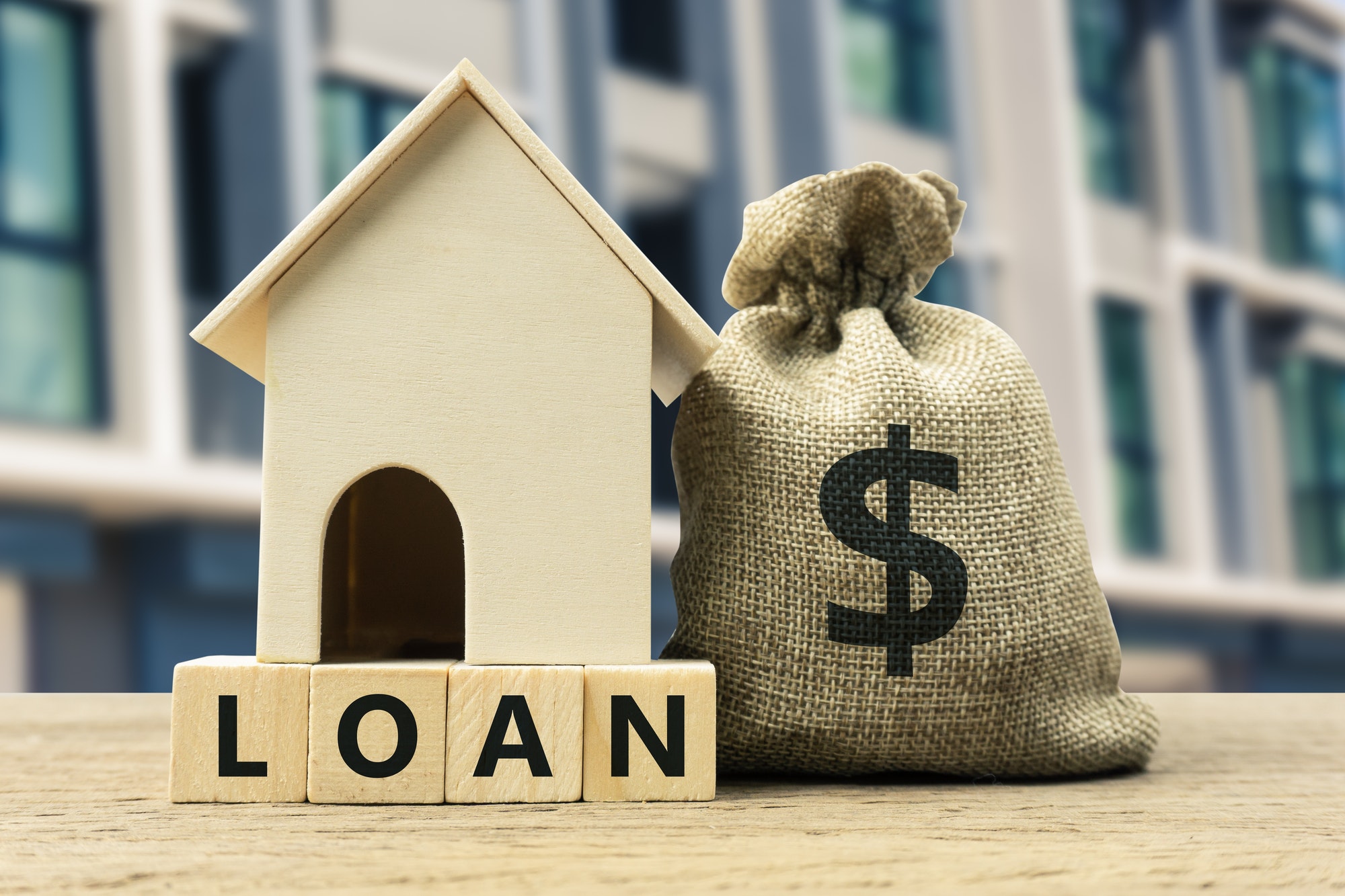Introduction
Kentucky is a state known for its beautiful landscapes and vibrant communities, making it an attractive place to buy a home. However, navigating the complex world of home financing be a daunting task for many prospective. Thankfully, there is a solution that simplifies the home financing process for Kentucky homebuyers – the FHA 203k loan. Explore the benefits and requirements of FHA 203k loan kentucky and the unique advantages FHA loan kentucky program tailored for property improvements.
What is an FHA 203k Loan?
The “203k” in the FHA 203k loan refers to Section 203(k) of the National Housing Act, which outlines this particular loan program. It’s aimed at encouraging the revitalization and renovation of older or distressed properties by providing a convenient financial solution that includes the costs of home improvement or rehabilitation.
Standard 203k and Limited 203k. The Standard 203k is suitable for more extensive renovations, structural repairs, and projects exceeding $35,000. On the other hand, the Limited 203k is designed for smaller-scale renovations, typically capped at $35,000, focusing on minor upgrades and improvements.
How Does It Work?
The FHA 203(k) loan works by allowing borrowers to finance both purchases of the cost of renovations into a single mortgage. Here’s a breakdown of how it typically operates:
- Identifying a Property: Borrowers look for properties that require renovation or repairs.
- Loan Application: Borrowers apply for an FHA 203(k) loan through an approved lender. The application process involves providing details about the property, proposed repairs, and personal financial information.
- Property Appraisal and Inspection: An FHA-approved appraiser assesses the property’s current value and determines its post-renovation value. The appraiser also identifies the necessary repairs and estimates their costs.
- Consultant or Contractor Selection: For standard 203(k) loans, borrowers hire a HUD-approved 203(k) consultant or contractor to create a detailed proposal outlining the scope of work.
- Renovation Process: Borrowers start the renovation or repair work, following the guidelines outlined in the project proposal. The 203(k) consultant or contractor oversees the project, ensuring compliance with FHA standards.
- Mortgage Payments: After the project is complete, borrowers resume making regular mortgage payments, now including the financed renovation costs.
Types of FHA 203k Loans
The FHA 203(k) loan program offers several types of loans designed to facilitate home purchases or renovations. Here are the main types of FHA 203(k) loans:
1. Standard/Full 203(k) Loan:
- Purpose: This comprehensive loan covers major structural repairs, renovations, and remodeling projects, including those requiring architectural plans or engineering.
- Property Eligibility: Suitable for properties in need of significant rehabilitation or those that may be deemed uninhabitable without repairs.
- Loan Limits: The loan amount is determined by the projected value of the property post-renovation and includes the cost of repairs and the home’s purchase price.
2. Limited 203(k) Loan:
- Purpose: Designed for minor and non-structural repairs or improvements, such as cosmetic upgrades, small renovations, or repairs not exceeding $35,000.
- Streamlined Process: Offers a simpler application and approval process compared to the Standard 203(k) loan, with fewer documentation requirements.
- Property Eligibility: Suitable for properties requiring less extensive renovation work and for borrowers seeking a more straightforward loan option.
3. FHA 203(k) Refinance Loan:
- Purpose: Allows existing homeowners to refinance their current mortgage and include funds for home improvements or repairs in the new loan.
- Eligibility: Borrowers must meet standard FHA loan requirements and can use this option to leverage their equity for renovations.
4. FHA 203(k) Streamline Refinance:
- Purpose: Similar to the Limited 203(k) loan, this option allows homeowners with existing FHA mortgages to refinance and include funds for minor repairs or improvements.
- Simplified Process: Intended for borrowers seeking a straightforward refinance option for minor upgrades without a full-fledged renovation.
5. Energy Efficient Mortgage (EEM) 203(k):
- Purpose: Encourages energy-efficient upgrades by incorporating the cost of energy-efficient improvements into the FHA 203(k) loan.
- Eligible Improvements: Covers expenses for upgrades such as HVAC systems, insulation, windows, and other energy-saving enhancements.
Advantages of FHA 203k Loans in Kentucky
FHA 203(k) loans offer several advantages for homebuyers and homeowners in Kentucky, especially for those seeking to purchase or renovate properties:
- Financing for Renovations: One of the primary benefits is the ability to finance both the purchase or refinancing of a home and the cost of renovations or repairs into a single loan. This streamlined financing can be beneficial for properties that need significant improvements.
- Flexible Qualification Requirements: FHA loans often have more flexible qualification requirements compared to conventional loans, making them accessible with limited down payment capabilities.
- Low Down Payment: FHA 203(k) loans typically require a lower down payment compared. Homebuyers may qualify with a down payment as low as 3.5% of the total loan amount, which can be advantageous for those with limited savings.
- Support for Fixer-Upper Properties: These loans are suitable for purchasing fixer-upper properties or distressed homes that require renovation. This allows homebuyers to consider a wider range of properties without needing immediate out-of-pocket renovation funds.
- Potential Increase in Property Value: Renovations financed through the FHA 203(k) loan can potentially increase the property’s value. This could lead to improved equity and potentially higher future appraisals.
- Streamlined Loan Process: The FHA 203(k) loan program offers a streamlined process, especially with the Limited 203(k) option for smaller-scale renovations.
- Interest Rates: FHA loans may offer competitive interest rates, which could benefit borrowers seeking financing for both the property purchase and renovations.
- Energy Efficiency Upgrades: Borrowers can use the loan to finance energy-efficient upgrades, which might lead to long-term savings on utility bills and contribute to a more sustainable home.
Property Eligibility for 203k Loans in Kentucky
The eligibility of a property for an FHA 203(k) loan in Kentucky follows certain criteria:
- Property Type: The property must be eligible for FHA financing, which typically includes one- to four-unit residences, including condos and certain mixed-use properties, as long as they meet FHA guidelines.
- Condition Requirements: Properties eligible for 203(k) loans include those in need of significant rehabilitation or renovation. This might include homes that are outdated, in disrepair, or require major repairs to meet livability standards.
- Primary Residency: FHA 203(k) loans are primarily for owner-occupied properties, so they’re generally not applicable to investment properties or second homes.
- HUD Consultants: For certain types of 203(k) loans (particularly the Standard 203(k) option for extensive renovations), HUD consultants might be required to evaluate the property’s condition and oversee the renovation process.
- Compliance with FHA Standards: The property must meet FHA standards and guidelines. This includes meeting health, safety, and structural integrity requirements.
- Appraisal Process: An FHA-approved appraiser will assess the property’s value both before and after renovations to determine the loan amount. The appraisal process ensures the property’s suitability for financing through the FHA 203(k) program.
- Eligible Repairs: The loan can cover a variety of repairs and improvements, including structural alterations, plumbing, roofing, flooring, HVAC, and energy efficiency upgrades. However, certain luxury improvements may not be covered.
Application Process
- Lender Selection: Find an FHA-approved lender in Kentucky that offers FHA 203(k) loans.
- Prequalification: Get prequalified to understand your borrowing capacity based on income, credit history, and other financial factors.
- Property Identification: Find a property that qualifies for the 203(k) loan program and assess its rehabilitation needs.
- Consultation: Discuss your renovation plans with the lender to ensure they comply with the FHA 203(k) guidelines.
- Loan Application: Complete the loan application by the lender and provide necessary personal, financial, and property information.
- Submission of Documentation: Prepare and submit required documents such as income verification, employment history, property details, renovation plans, and estimates.
- Approval and Closing: Await loan approval and schedule a closing date once the lender has processed your application and verified the necessary information.
Documentation Checklist
- Income Verification: Proof of income, including pay stubs, W-2 forms, tax returns, and other sources of income.
- Employment Verification: Documents confirming your employment status, job history, and contact details for employers.
- Property Information: Appraisal reports, property inspection findings, and a comprehensive assessment of the property’s condition.
- Renovation Plans and Cost Estimates: Detailed plans outlining the repairs or renovations to be completed, along with cost estimates from contractors.
- Credit Information: Authorization for the lender to access and review your credit report.
- Identification: Government-issued photo ID, like a driver’s license or passport.
- Bank Statements: Statements from your bank accounts to verify assets and savings.
- Insurance Details: Homeowners insurance information for the property.
- Additional Documentation: Any other specific documents required by the lender based on your financial situation or the property’s condition.
Consultant and Contractor
For certain FHA 203(k) loan types, especially the Standard 203(k), a HUD-approved consultant may be necessary to assess the property and oversee the renovation process. Additionally, contractors involved in the renovation need approval from the lender and must adhere to FHA guidelines.
Lender Expertise
Working with a lender experienced in FHA 203(k) loans is crucial for navigating the application process smoothly. They can guide you through documentation requirements, ensure compliance with guidelines, and facilitate a more efficient application and approval process.
Interest Rates and Loan Terms
Here are various points related to FHA 203(k) loans in Kentucky:
- Property Eligibility: FHA 203(k) loans are available for various properties, including single-family homes, multi-unit properties (up to four units), condominiums, and even certain mixed-use properties. However, the property must meet FHA guidelines and standards.
- Loan Types: Two tipe of primary types of FHA 203(k) loans: the Limited 203(k) and the Standard 203(k). The Limited 203(k) has a cap on the renovation costs, while the Standard 203(k) has broader renovation options but may involve more complex processes.
- Renovation Scope: The loans allow borrowers to finance both the purchase price or existing mortgage balance and the cost of renovations or repairs into a single loan.
- Renovation Requirements: Renovations financed through FHA 203(k) loans should meet certain guidelines. They should be necessary for the property’s safety, functionality, or modernization and comply with local building codes.
- Documentation Needed: The application process involves providing various documents, including income verification, asset statements, credit reports, contractor bids or estimates, architectural plans (if applicable), and other paperwork required by the lender.
- Consulting Contractors: The borrower must work with FHA-approved contractors or consultants, especially for Standard 203(k) loans, to ensure the renovations meet FHA standards and are completed satisfactorily.
- Loan Limits: FHA has specific loan limits for different areas, so borrowers need to check the maximum loan amount allowed for the county they’re considering in Kentucky.
- Down Payment: FHA 203(k) loans typically require a minimum payment of 35% of the total loan amount, which can be beneficial for buyers with limited funds for a large down payment.
Conclusion
the FHA 203(k) loan program presents a remarkable opportunity for homebuyers and homeowners in Kentucky. This loan initiative streamlines the process of purchasing or refinancing a property while including the costs of necessary renovations or improvements into a single mortgage. Its versatility, offering both Standard and Limited options, caters to various renovation needs and property conditions.
Kentucky residents can benefit from this program’s flexibility, allowing them to enhance properties that require minor upgrades or extensive rehabilitation. The loan’s ability to incorporate renovation costs alongside the purchase price widens the scope of available properties and supports the revitalization of older or distressed homes.
Visit RateChecker to get free mortgage quotes!
Generated with WriterX.ai — best AI tools for content creation


